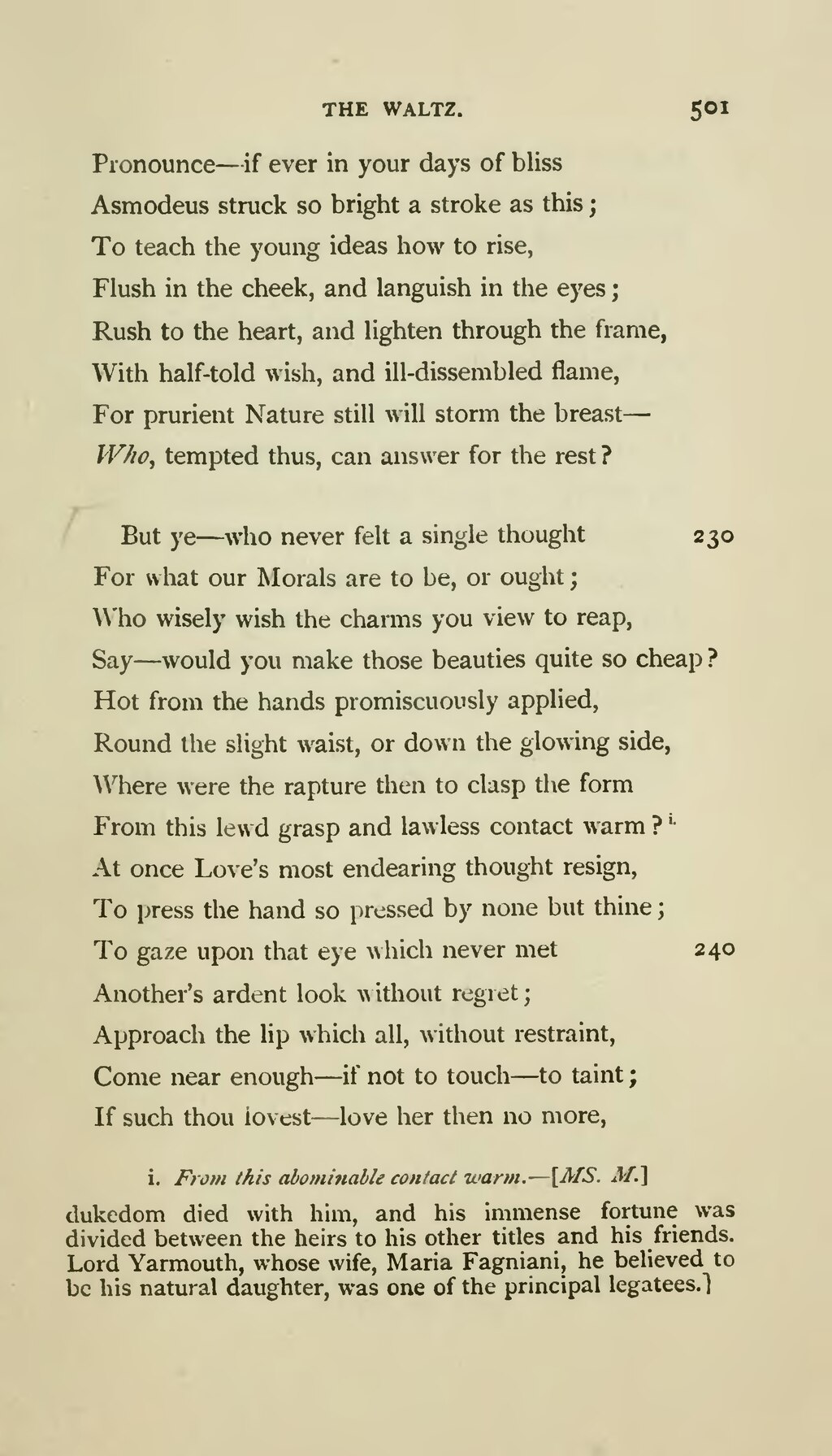Pronounce—if ever in your days of bliss
Asmodeus struck so bright a stroke as this;
To teach the young ideas how to rise,
Flush in the cheek, and languish in the eyes;
Rush to the heart, and lighten through the frame,
With half-told wish, and ill-dissembled flame,
For prurient Nature still will storm the breast—
Who, tempted thus, can answer for the rest?
But ye—who never felt a single thought230
For what our Morals are to be, or ought;
Who wisely wish the charms you view to reap,
Say—would you make those beauties quite so cheap?
Hot from the hands promiscuously applied,
Round the slight waist, or down the glowing side,
Where were the rapture then to clasp the form
From this lewd grasp and lawless contact warm?[1]
At once Love's most endearing thought resign,
To press the hand so pressed by none but thine;
To gaze upon that eye which never met240
Another's ardent look without regret;
Approach the lip which all, without restraint,
Come near enough—if not to touch—to taint;
- ↑ From this abominable contact warm.—[MS. M.]
dukedom died with him, and his immense fortune was divided between the heirs to his other titles and his friends. Lord Yarmouth, whose wife, Maria Fagniani, he believed to be his natural daughter, was one of the principal legatees.]
